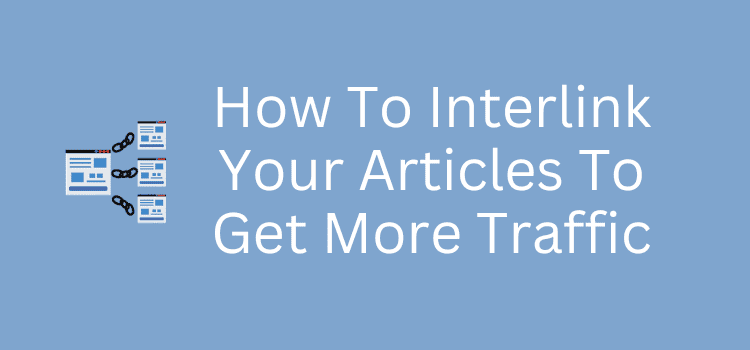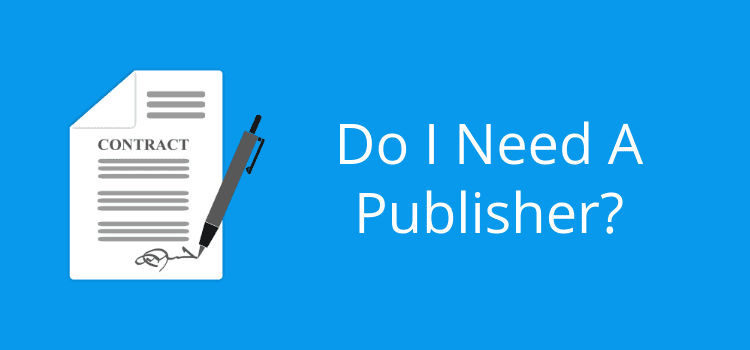
Are you thinking, what will it take to get my book published?
Do you have your manuscript in a drawer or stored on your computer?
Was it the drive to make a living from your passions that led you to write a book?
There are a lot of publishing routes you can take with many different publishing companies.
How to get your book published
The dream of most writers is to land a traditional publisher.
But publishing deals are hard to get.
You will need to find a literary agent to represent you.
With this route, the publisher pays you an advance and royalties on book sales.
They assume all of the publishing and marketing costs.
You get paid by the publisher for the publishing rights of your book.
Some new small book publishers have different publishing models and how they pay authors.
Unlike traditional publishing, you don’t generally need an agent.
You could also choose to self-publish or hire a service that charges you to publish your book.
No matter which routes you take, one fact you need to keep in mind is that the publishing journey can be a long haul.
Finding a traditional publisher
How do you find a publisher for your first book if you want to take the traditional route?
To get your book published, you don’t need to have connections in the industry, but it really helps.
If you have referrals or contacts, it can be a big bonus for you.
Most big publishers do not accept unsolicited manuscripts from first-time authors, especially fiction books.
But for those who do, they usually assign manuscripts to first-readers, which is often the task of interns.
A good first-reader can determine whether you are publishable or worthy of reading by reviewing the first few pages of your manuscript.
If you want a publisher to look at your book, you have to know how to take the right steps.
Understand the genre of your work
When you are looking for representation, you need to have a clear understanding of where to pitch your book.
The same should apply when you are writing your book.
Fiction and non-fiction writers might take different paths in publishing.
But knowing your genre is vital. What precise category or genre is your book?
Most publishers have a preference for specific genres.
You need to match your genre with a publisher’s preference.
Perfect your manuscript
Never rush to get published before you have perfected, polished, and edited your manuscript.
Once you’ve written your manuscript, take your time to work on it.
Make sure you get feedback from credible sources such as an editor or beta readers and then edit it carefully.
You need to ensure that the manuscript you submit is the best it can be when you send your book proposal.
For non-fiction writers, you don’t always need to have a complete manuscript ready.
Instead, you can write a proposal for the book. It acts as a business plan for the story.
You use it to convince a publisher to pay you so that you can write the book.
Never forget to research the marketability of your idea.
How you market a book is sometimes of more importance than the quality of your writing.
Do a lot of reading

You believe in your writing skills, ideas, and visions. You might dream of amassing a large reader base.
But to compete in this highly competitive field, you need to be on par with the standards of published authors in your genre.
You should do a lot of reading of popular titles in your category.
Use these books to make comparisons with your work.
But don’t only pick the bestsellers.
Read some mediocre ones, too, because they will help you identify many common mistakes to avoid.
Take note of the features of the books that you like that make them enjoyable.
Then, you can try to incorporate those ideas into your writing.
As an author in a particular genre, familiarize yourself with the common attributes of a great book that works well for your type of book.
A publisher will only consider a book if they believe they can sell it to readers.
Do you need an agent?
Your decision will depend on who you would like to publish your book.
If you decide on traditional publishing, you will need an agent who is an expert in the industry.
A majority of publishers don’t accept manuscripts from authors who are not represented by an agent.
A good literary agent will be able to match you with the right publisher who might be interested in your work.
You will need an agent who knows how to sell a book to a publisher.
Your agent should know the publishing industry very well, be able to negotiate the optimal deal, and ensure that you get paid appropriately.
Typically, agents get paid for book deals when they sell your work. Most often, it is a percentage commission on your royalties and advances.
Do your research and find out which agents and publishers accept your type of work.
There are various platforms where you can start your search to find the right publisher for your book.
You could try Poets & Writers, Reedsy, Agent Query, or Duotrope.
If you plan to use a small press to publish your book, you can generally submit directly without an agent.
Prepare your documents

You need to get your story and manuscript noticed.
Or in other words, you need to learn how to sell a book to a publisher.
Otherwise, it will end up in the slush pile. You certainly don’t want your long hours and months of working on your book to go to waste.
Publishers and agents usually have specific requirements regarding book submissions.
You need to know what each one requires and abide by the instructions.
Generally, the documents you may need to submit include a book proposal, a query letter, a synopsis, and sample chapters.
A query letter is usually a one-page pitch to the prospective agent or publisher.
Your initial aim is to persuade them to ask you for a further proposal or your full manuscript.
You might be asked to send sample chapters of your memoir or novel.
Choose those from the beginning of the manuscript. For non-fiction work, any section is usually acceptable.
Ready yourself for four responses
1. No response. This is quite common, but don’t be dissuaded.
2. A polite rejection letter.
3. A request for a partial manuscript or synopsis.
4. A request for the full manuscript.
No matter how many times you receive no response or a rejection letter, you shouldn’t give up. Keep querying over and over again.
Almost every famous author you can think of was rejected many times by literary agents and publishers.
Getting your first book published isn’t an easy option. It takes time and a lot of patience.
Analyze the rejection letters you receive. Check for any patterns about what isn’t working.
Perhaps you can use the ideas to improve your manuscript.
Failures and disappointments are often opportunities to learn, so don’t overlook their value.
If you want to write and publish, you need to accept that rejection is part of the process.
But hopefully, you might be lucky and get a positive response.
The publishing process is not fast
If you are lucky enough to find a publisher for your book, don’t expect it to be at the bookstores overnight.
Book publishing is a slow step-by-step process.
Publishers need a lot of time for editing and rewriting, book cover design, and production. There is also publicity, marketing, and promotions to arrange.
It can take more than a year before your book is finally published.
Because of this, don’t bother chasing trends and writing a book that will not be current a year from now.
Make sure that the story you write will stand the test of time.
Conclusion
If you tell your story well, with great characters, it will stand a chance.
It might be incredibly hard to sell your story, but it is possible to convince a publisher to publish your book.
However, if writing is what you love and you want to invest your time and energy into it, don’t let anything stand in your way.
Keep going despite the many rejections you may receive. Learn and improve by analyzing them.
Never give up on doing the best you can to realize your dreams.
Related Reading: Paying A Vanity Press To Publish Your Book – Be Very Wary
Share This Article



I’m an author. My first book was traditionally published last year. “Girlz ‘N the Hood: A Memoir of Mama in South Central Los Angeles,” was published by the Pact Press in Sept. 2021.
I didn’t realize how unusual it was to find an agent and get a publisher for a first book. It all took a couple of years. I didn’t know about that either. I’m incredibly grateful! I’m also grateful for sites like this that tell people what to expect. It’s been quite a ride!
Hopefully, this will get a response. I’m not a professional writer, but I have been taking mentorship from a guy on about, how to be an erotica novelist. I have been writing since January 2020. I have 15 books that I have written under the pen name, Victoria Cumming. The erotica novels that I have written are anywhere from 2500 to 5000 words per book. They are published on Amazon. What I want to do is a bundle of 10 or more books in one and have a publisher, publicist or whatever help me to get this started. I’m at a loss for trying to find a publisher to help me with this endeavor. Any help in this would be greatly appreciated. Thank you.
Hello Casey. Yes, you do get a response. Getting a publisher is really tough for erotic novels. You’d best stay with self-publishing.
Hi there,
I have almost completed writing a book about my research and lifelong experiences relating to the spiritual and paranormal phenomena. I have written 75,000 words so far.
What would you recommend to be an appropriate word count for this genre and do you think self publishing is the best route as a pose to using publishing companies for an inexperienced author?
Many thanks
Mel
There’s a simple rule for word count, Mel. Use as many as you need to tell your story but no more.
As for publishing, you have choices. You could try finding a publisher first, but if it doesn’t work out, you always have self-publishing to turn to.
How do I know if I am speaking to a publisher or agent who is not legit? I know in this world today there are many scammers and I fear putting my hard work ad dedication out there and getting my hopes up when in reality I am just part of a scam?
I found an old manuscript in my great grandpas safe. He left it to me. The whole thing is written in crazy code and has some really amazing colorful pictures in it. It was in a leather flip type folder tied with a brittle leather strap. The pages were yellow and brittle to the touch. We have meticulously had them recreated to almost the exact details. It looks like ancient maps, alien artifacts, blueprints and lord knows what else. Do you think something like this would be interesting for others to read? It reminds me of the Voynich manuscript.
You could try to contact publishers or literary agents to see if there is any interest. You never know.
I’d given up, and went to a getting my own website. Guess, it’s time to try again. Also, my 50’s daughter just told me today that she is finally going to start one for herself. She has a character she developed that she can use to illustrate her points. I think your effort on this will help. It gives both of us some solid suggestions.
Thank you,
Catherine Haenze
I completed my poetry manuscript and I am ready to publish. Do you think I should go the self published route or find a publishing company to publish my book? What is the market like for poets?
Hi I want to write a book on my past experience with my ex partner who abused me for 10 years caused me to lose my children to the local authority kept me a prisoner in my own home made me have mental health issuues almost take my own life and put me in a wheelchair made me disabeld for the rest of my life but as you can see I have no experience in writing I dont know where to put full stops comas ect,
But would really like to get my story out there to help other woman who may be going through the same and would like them to here my story before its to late for them as it is me
Is there anyone you could recomed to help as I have very little money cant afford to pay someone
Thank you
How does one know if the public would be interested in a book?
Hi, I’m currently writing a novel and found your article quite helpful to a first time writer down in Aus!
I just wondered, when you say “No matter how many times you are rejected… Keep querying over and over again” does this mean to the same publisher or a different one each time? Should a keen writer be applying to more than one publisher at once? And what if you receive interest from multiple of your queries, can you just reject some publishers or is this why your should only apply to one at a time?
Many thanks!
You should only query a literary agent or publisher once. But expect to wait some time for each response.
Thank you so much, this helps me a lot, cheers!